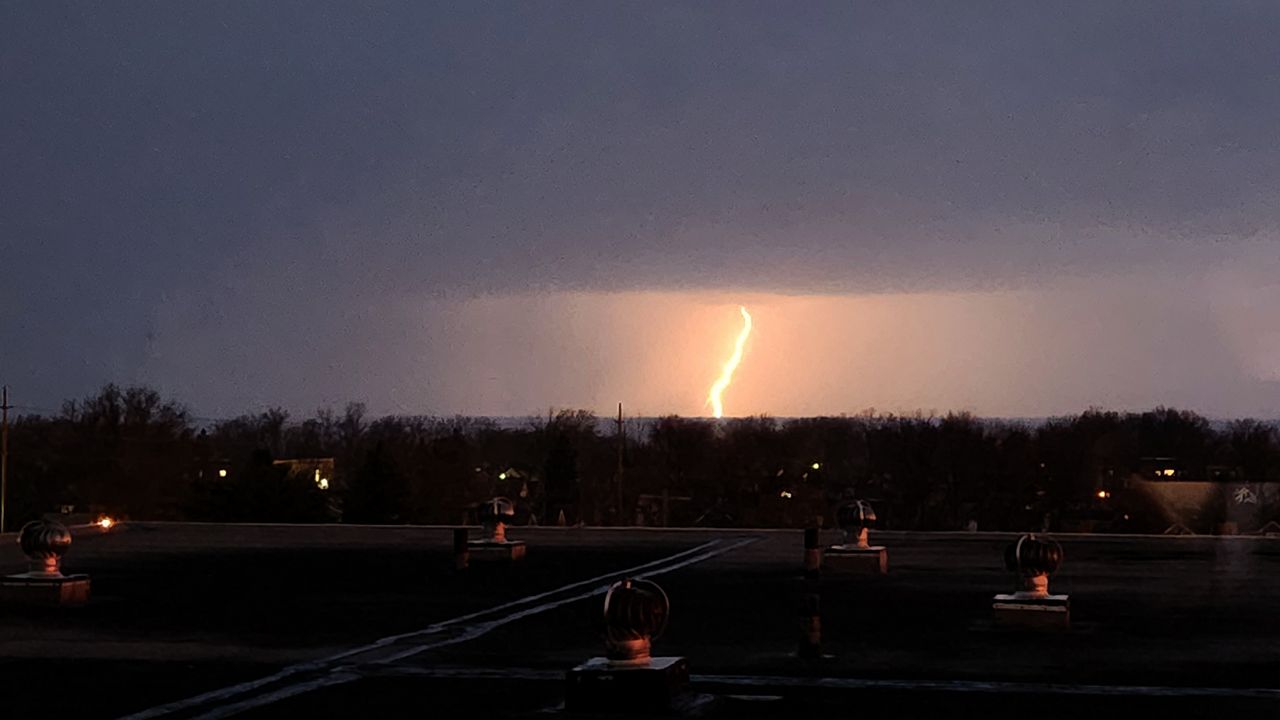DAYTON, Ohio — The Dayton Department of Water is leading the way for Ohio when it comes to testing water for "forever chemicals" and toxins, known as PFAS.
The chemicals are found in many everyday items, and according to research, long-term exposure can be linked to cancer and other serious health conditions.
Recently, the department became the first in the state to achieve PFAS lab certification and it’s happening way ahead of the updated federal regulations starting in 2027.
Inside the Organics Lab at the Dayton Water Supply and Treatment facility, you’ll find busy scientists like Rachel Easter and Clara Leedy hard at work testing water samples for PFAS.
You’ll also find Division Manager Keshia Kinney and Supervisor Brandon Turner, keeping an excited eye on the process.
“When they got their certification I was like the proud Mom like ‘oh my gosh you got it!’ I’m so excited for all of them because it showed a lot of their hard work and their dedication. Also that analytical skill set, these are the guys that people don’t think about when you think about water quality. So for me as a former lab person it was very exciting to see them get this certification and lead the charge,” said Kinney.
A few years ago, the department purchased a special instrument and the staff became certified to run the samples.
“It allows us to be flexible with our testing and we are going to be one of the first ones to meet the new regulations for testing PFAS in the state of Ohio,” Turner said.
“Samples were running about $900 to $1,000 per sample and then you had turn around times where we would get the results back anywhere between six and eight weeks,” added Kinney.
Now, the samples cost about $600, but thanks to the instrument, they’re tested in-house.
Water samples come from wells or the plant.
“When we want to look at the data on the instrument, first we have to extract it. The chemicals we want to look for get stuck inside these cartridges,” said Water Instrumentation Specialist Leedy.
“Essentially we put a liquid into here, we’ve got some files going on in here. Essentially it takes up the sample, it runs it through a column and it heats it up and breaks it down to its most basic form,” said Water Instrumentation Specialist Easter.
The lab runs between 30 to 100 PFAS samples each month.
In 2023, the lab analyzed more than 400 samples and the team is on track to do the same amount this year.
“For regulatory purposes we really only have to run four samples a month, but because we are so conscious about what is going on in our well-field and in our treatment plants, we really want to know exactly where we do and don’t have issues, where we’re seeing things, how things move,” said Easter.
The city has more than 500 groundwater monitoring wells to help identify contaminants.
Dayton can also test outside samples which can bring in a financial boost to benefit the department and the lab.
“It allows us to be a part of the narrative and the conversation to help other water systems and also our regulatory bodies,” said Kinney.
For Leedy and Easter, it’s a position of pride.
“I have a background in chemistry and I know I could be doing chemistry anywhere, but I choose to do it here every day. It’s so meaningful, it’s so purposeful, it’s so important. We are really protecting the lives of 400,000 every single day,” said Easter.
Purchasing the instrument to test is only one of the first steps as Dayton leads the way for PFAS testing.
Soon the department will be expanding the building to do even more samples and adding more wells in the well field to pull water for testing.












